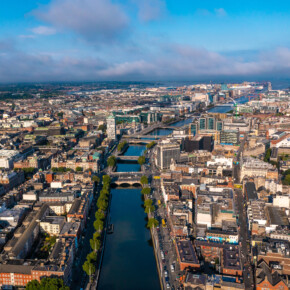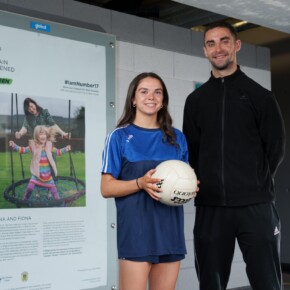Oxfam shops call on Dubliners to say yes to Second Hand September
Dale Greenwood 01 Sep 2020
MORE than three in four Irish people (76 per cent) donate unwanted items to charity shops because it reduces the amount of clothes being binned, according to research carried out by Oxfam Ireland.
With 13 million tonnes of textile waste produced globally each year – 95 per cent of which can be reused or recycled – this statistic indicates a positive Irish response to a situation that is increasingly harming our planet.
Some 225,000 tonnes of textiles are dumped in Ireland each year – most of which can take up to 200 years to decompose.
Landfills are being fuelled by a global culture of throwaway fashion that is recognised as one of the biggest polluters in the world today, while also using up vast amounts of water in production processes; a vital and lifesaving natural resource denied to so many people.
Now Oxfam is asking people to join them through Second Hand September – a challenge to say yes to shopping second hand for the month.
The aid agency, which supports communities across the world impacted by the climate crisis, is encouraging people to take on the personal challenge for 30 days and discover the joys of pre-loved shopping.
Michael McIlwaine, Oxfam Ireland’s Head of Retail, said: “Cheap production and plummeting prices means the clothes we buy often have a short lifespan, with more and more ending up in landfill sooner than they should. Our shops play a part by offering people a way to reduce the amount of items in Irish landfills as well as a way to reuse and extend the lifecycle of clothes and other items.”
World Vision Ireland said that climate change has had catastrophic impacts on the developing world.
The charity is calling on the Irish public to avoid fast fashion, and to support #SecondHandSeptember by only buying garments from charity shops instead.
“Fast fashion refers to the mass production, mass disposal of clothes. This cycle of throwaway fashion is putting a huge amount of pressure on our planet and it’s utterly unsustainable,” Fiona O’Malley, the Director of Communications and Fundraising at World Vision Ireland, said.
“Textiles also cause the second highest pressure on land use and are the fifth largest contributor to carbon emissions from household consumption. Our transport, food consumption and fashion addiction patterns are more than just a commute, a dinner or clicking the checkout button.
“Our everyday choices have direct consequences in the form of polluted air, child labour, a melting glacier and rising sea levels. We all have a part to play in fixing our fractured planet, but time is running out. We now have an opportunity to consider the role we all need to play for the survival of the next generation and the planet.”











